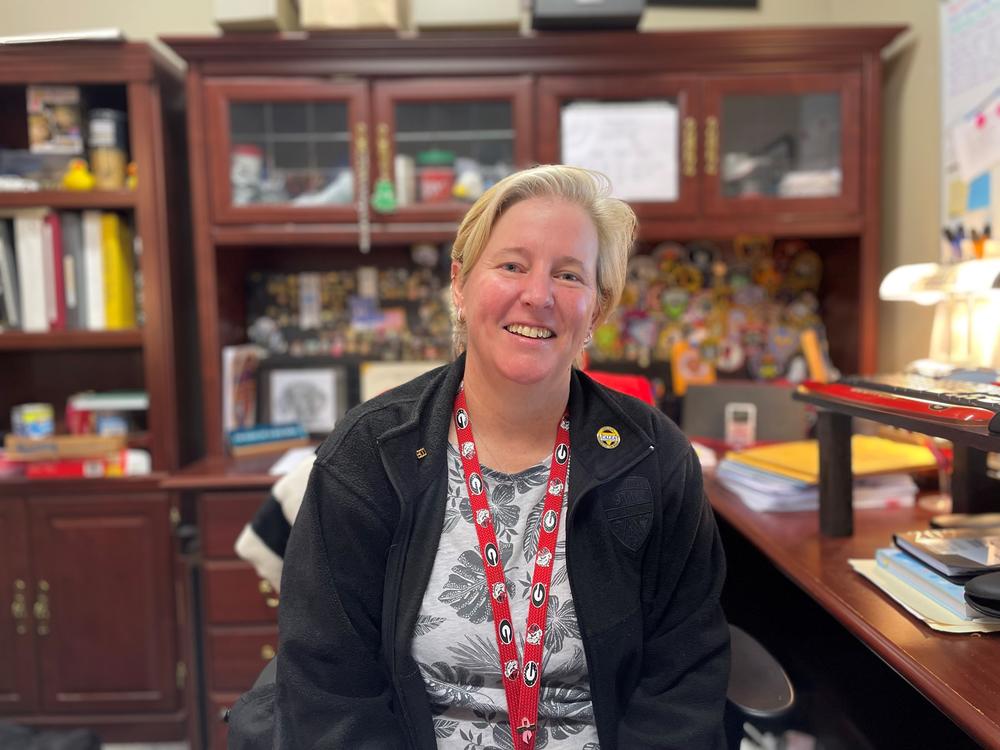
Caption
The national 988 mental health crisis and suicide prevention hotline goes live Saturday, July 16, 2022.
Credit: Pexels
In the past two years Georgia has seen a significant increase in those needing care for their mental health. That’s why advocates want to get the word out about the new, 3-digit crisis hotline, 988, which goes live across the country July 16. GPB’s Ellen Eldridge reports.

The national 988 mental health crisis and suicide prevention hotline goes live Saturday, July 16, 2022.
Someone to answer the call. Someone to respond. Some place to go.
That's Georgia's plan to make the new 988 crisis line a success, according to the Georgia Department of Behavioral Health and Developmental Disabilities.
Since the national mental health crisis and suicide prevention line was approved by the Federal Communications Commission in July 2021, DBHDD has been strengthening its network of resources and bolstering staff, Monica Johnson, the DBHDD's division director of behavioral health, said.
"We have done some enhancements to add more staff over the last several months for the call center because that's kind of goal No. 1," Johnson said. "People need to be able to answer the phone. This is not going to be an overnight process ... it's going to take time."
PREVIOUS REPORTING: 988 will be the '911' for mental health/addiction crisis calls
G-CAL receives an estimated 700 to 800 calls each day.
When the 988 line opens Saturday, call volume will climb and continue to do so over the next several years, DBHDD Assistant Commissioner for Agency Affairs Ashley Fielding said.
"Over the last 20 months, Georgia has invested about $20.5 million in 988-related expenditures," she said. "That includes money that the Georgia General Assembly designated this fiscal year for additional crisis beds in high-need areas where we had the ability to ramp up capacity quickly. That includes additional staff for callers who take those crisis calls on the Georgia Crisis and Access Line and enhancements to that call center technology so that we can more efficiently route those calls."
Officials with the United States Department of Health and Human Services said Thursday that the National Suicide Prevention Hotline has historically been “massively underfunded,” but the agency said more than $400 million in federal funding has been dedicated for the 988 hotline launch.
A quarter of that money was distributed to U.S. states and territories via grants.
Calls to the National Suicide Prevention Hotline from Georgia are already routed to the Georgia Crisis and Access Line or G-CAL.
The Georgia Crisis and Access Line is 1-800-715-4225.
Calls to the easier-to-remember 988 hotline will automatically route through G-CAL.
When people call, text, or chat 988, they will be connected to trained counselors who are part of the existing National Suicide Prevention Lifeline network. These trained counselors will listen, understand how the callers problems are affecting them, provide support, and connect them to resources if necessary.
The current Lifeline phone number will also remain available to people in emotional distress or suicidal crisis, even after 988 is launched nationally.
The National Suicide Prevention Lifeline is also available at 1-800-273-TALK (8255).
“There are calls coming into the 911 system now that would be more appropriately diverted to 988, to be able to get connected to ongoing treatment and recovery support,” HHS officials said Thursday.
Part of the reasoning for 988 is that many law enforcement officers are not equipped to deal with mental health crises. Some cities have implemented co-responder units to help fix this problem, and early results, such as the number of reduced arrests, are promising. But only a dozen or so programs currently exist in Georgia.
RELATED: How One Police Department Is Trying To Steer Addicts Into Recovery Instead Of Making Arrests

Cobb County 911 call center operations manager Kathy Stickland sits at the desk in her office.
Calling 911 after a loved one attempts suicide does not mean trained mental health specialists will respond, Cobb County's 911 call center operations manager, Kathy Strickland, said. It's also tough to quickly determine if a person has autism or struggles with communicating the extent of their mental anguish.
"We send fire and we send police because we don't know if they're having a mental episode," Strickland said. "We don't know if they're having an issue with a situation that's going on at home. We don't know what the case is."
That has, at times, proven deadly when police respond with force.
Lane Pease Hendricks, is the program director of Kate’s Club, an Atlanta-based nonprofit dedicated to helping adolescents when a parent or sibling dies.
Before the pandemic started, one in every 13 Georgia children experienced the death of a parent or sibling before age 18, she said. And that number is higher in some counties with greater health care disparities.
MORE: Half the nation's caregivers who died by COVID-19 were in 5 states. Georgia is one of them
It will take years to assess the damage done to families by the coronavirus pandemic, Hendricks said.
She said she has seen more children, teens and young adults struggling with mental health issues in the past two and a half years who will be helped by access to 988.
"Having an easy number to remember is essential for young people, especially, to access help," she said.
Substance use among teenagers and adults has been rising along with rates of suicide, and more children are showing up in emergency rooms seeking mental health treatment, said Abdul Henderson with the Georgia chapter of Mental Health America.
He said 988 expects to receive up to 500,000 calls a year from within Georgia alone.
"With respect to some some other stats, we know that we've seen a 33% increase in children entering emergency departments seeking mental health treatment," Henderson said. "We know that substance use has gone up among teenagers, especially among teenage girls."
There has also been a significant increase in suicidal ideation and death by suicide, Henderson said.
The ability to text 988 was approved by the FCC last year. Since last June, there’s been a 77% increase in text message responses by licensed counselors nationwide.
Anyone can call or text 988 from anywhere in the country beginning Saturday, July 16.